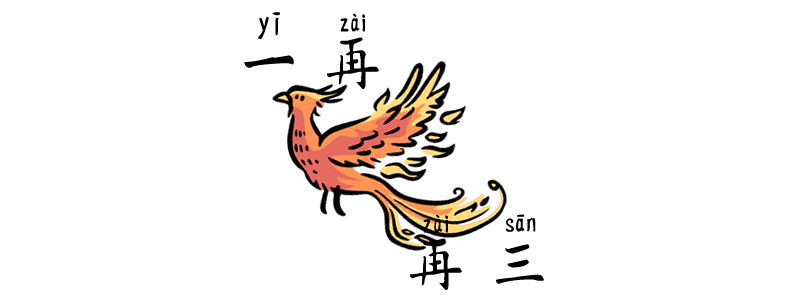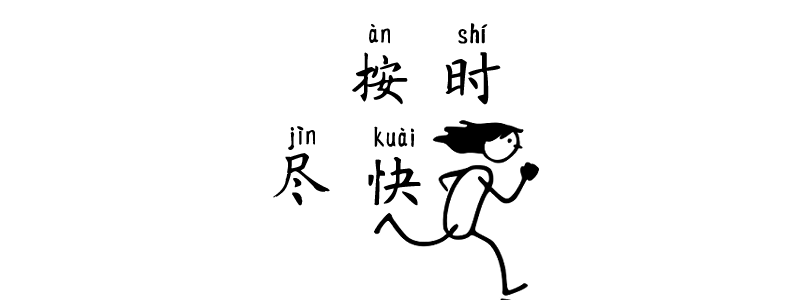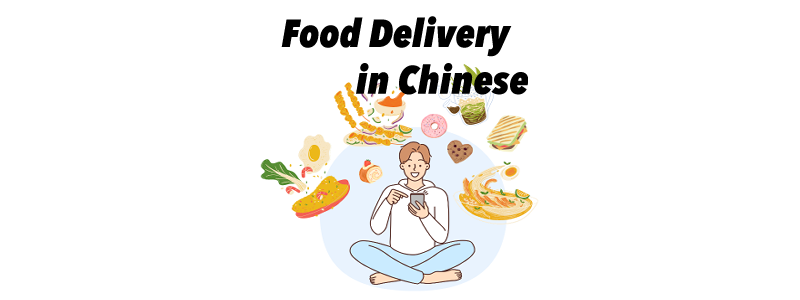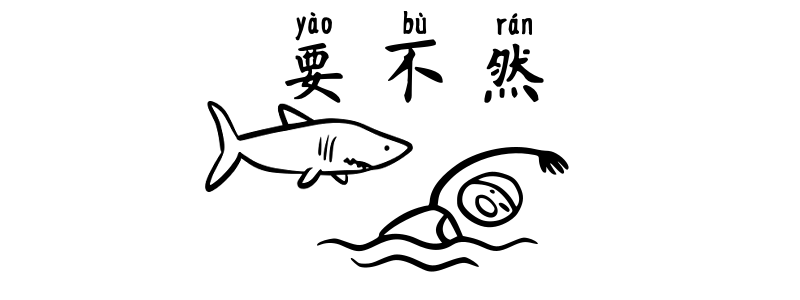Grammar Point:一再 yízài and 再三 zàisān are both Chinese expressions that convey the idea of “repeatedly” or “again and again.” While they share a similar meaning, there are nuanced differences in how they are used. Structure 一再 yízài In Chinese, the word 一再 yízà emphasizes the idea of doing something repeatedly or continuously, often to…
Author: tiffany
在 zài as On-going Actions
Grammar Point:In Chinese, the way to express on-going actions is by adding the auxiliary verbs 在 zài or 正在 zhèngzài in front of the verb. 在 zài is used for both short-term and long-term progress, while 正在 zhèngzài is used to emphasize the ongoing action at that moment. In spoken language, we prefer to use…
Not necessary in Chinese – 未必 wèibì
Grammar Point:The Chinese word 未必 wèibì means “not necessarily” or “may not necessarily” in English. It leaves room for the possibility that things could be different or may not turn out as expected. Structure 未必 wèibì + V / Adj / Clause 這個zhège文法wénfǎ未必wèibì簡單jiǎndān这个zhège文法wénfǎ未必wèibì简单jiǎndānThis grammar may not necessarily be simple. 他的tāde計劃jìhuà未必wèibì會huì成功chénggōng他的tāde计划jìhuá未必wèibì会huì成功chénggōngHis plan may not necessarily succeed….
To negate the previous statement – 不是 búshì
Grammar Point:This structure is a little confusing because the meaning of 不是 búshì is not just “is not”; it actually means “it is not true that.” This grammar structure is commonly used to express the negation of the previous statement. Structure 不是 + Statement 電視diànshì說shuō今天jīntiān天氣tiānqì很冷hěnlěng, 可是kěshì我wǒ覺得juéde不是búshì很冷hěnlěng电视diànshì说shuō今天jīntiān天气tiānqì很冷hěnlěng, 可是kěshì我wǒ觉得juéde不是búshì很冷hěnlěngThe TV said today’s weather is very cold, but…
On time and ASAP in Chinese
Grammar Point:The Chinese words 按時时 ànshí and 儘尽快 jǐnkuài are employed to convey various aspects of time management. 按時时 ànshí means “on time” in English, while 儘尽快 jǐnkuà translates to “as soon as possible” in English. Structure On Time – ànshí It is an adverb used to indicate punctuality or performing tasks according to a…
Food Delivery in Chinese
Hey foodies! Tiffany here, your guide at OneDotDot Chinese. Ever wondered how to navigate Chinese food delivery apps? Well, there are some essential words you gotta know. Let’s get ready for a culinary adventure at your doorstep! Food Delivery App in China One of the food delivery apps is Meituan. It’s not just about delivering…
Verb Duplication – V一V
Grammar Point:In Chinese, verb reduplication V一V suggests that the action is being done in a laid-back manner or that this action only takes a short time. Structure V(一)V These two verbs must be a monosyllabic verb, and the 一 yī can be dropped without changing the meaning. 我們wǒmen出去chūqù走一走zǒuyìzǒu吧ba我们wǒmen出去chūqù走一走zǒuyìzǒu吧baLet’s go for a (short) walk. 你nǐ可以kěyǐ幫bāng我wǒ看一看kànyíkàn我的wǒde句子jùzi對不對duìbúduì嗎ma? 你nǐ可以kěyǐ帮bāng我wǒ看一看kànyíkàn我的wǒde句子jùzi对不对duìbúduì吗ma?…
“Gradually” in Chinese – jiànjiàn
Grammar Point:The Chinese word 漸漸渐渐 jiànjiàn means “gradually” or “little by little” in English. It is often used to describe a process or development that happens gradually, step by step, without sudden or abrupt changes. Structure Jiànjiàn + V or Adj 4 月yuè開始kāishǐ天氣tiānqì會huì漸漸jiànjiàn暖和nuǎnhuo起來qǐlái4 月yuè开始kāishǐ天气tiānqì会huì渐渐jiànjiàn暖和nuǎnhuo起来qǐláiThe weather will gradually become warmer starting from April. 孩子háizi們men都dōu漸漸jiànjiàn長大zhǎngdà了le, 父母fùmǔ卻què漸漸jiànjiàn老lǎo了le孩子háizi们men都dōu渐渐jiànjiàn长大zhǎngdà了le, 父母fùmǔ却què渐渐jiànjiàn老lǎo了leThe…
Using 有 yǒu to express existence
Structure S + 有 yǒu + O This simple structure can express ownership. As Chinese does not have verb conjugation, it can be translated into English as have, has, or had. 我wǒ以前yǐqián有yǒu一yì隻zhī狗gǒu我wǒ以前yǐqián有yǒu一yì只zhī狗gǒuI had a dog before. 姊姊jiějie有yǒuiPhone 手機shǒujī姐姐jiějie有yǒuiPhone 手机shǒujīMy sister has an iPhone. 你nǐ有yǒu500 塊kuài錢qián嗎ma? 你nǐ有yǒu500 块kuài钱qián吗ma? Do you have $500? 你nǐ有yǒu空kòng嗎ma?你nǐ有yǒu空kòng吗ma?Do you have time?…
“Otherwise” in Chinese – 要不然 yàoburán
Grammar Point:要不然 yàoburán is a Chinese term used to suggest an alternative or express a conditional scenario. It’s often translated as “otherwise” or “or else” in English. In conversational Chinese, it’s also common to hear native speakers say 不然 bùrán, 那不然 nà bùrán or 啊不然 a bùrán instead. Structure Condition + 要不然 + Result First, state a situation or…









